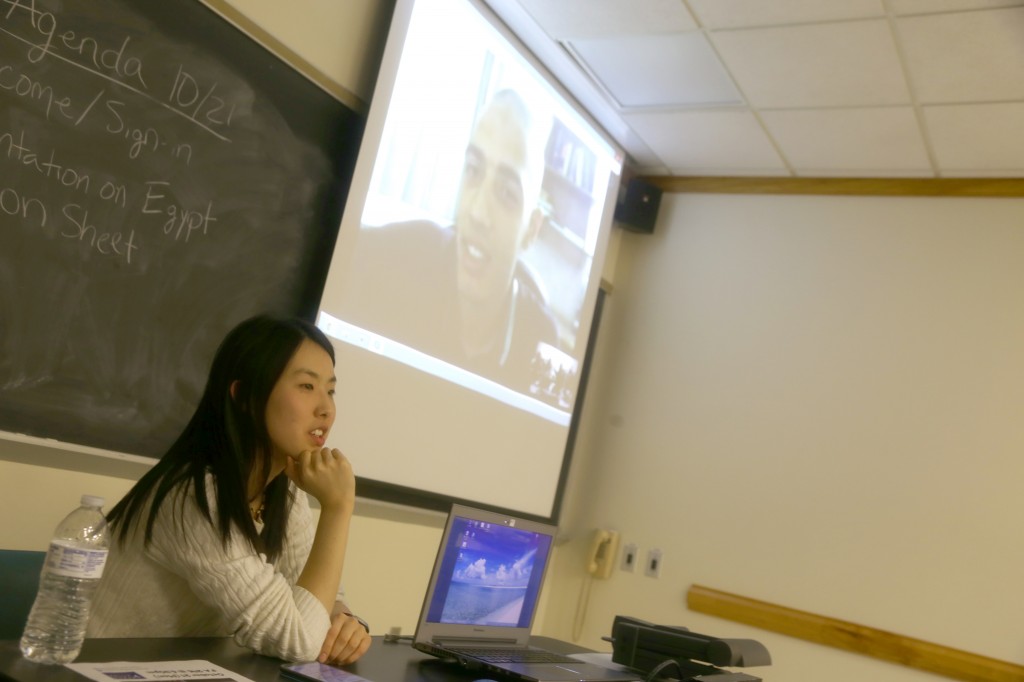
To give Binghamton University students a look at the conditions for students their age in Egypt, Peace Action Binghamton University organized a Skype conversation with a student from Cairo University.
JooWon Kim, a senior majoring in political science, interned in Egypt and hosted the session to discuss violence taking place in the country. Uprisings in Egypt started in 2011 when the people clamored to oust then-President Hosni Mubarak, who was not elected democratically and was denounced through social media.
Students spoke live via Skype with Omar Deraz, a 19-year old studying political science and economics.
“Things are really unstable right now. Every day people are dying and going missing,” Deraz said. “Yesterday there was a wedding, and four people died right outside the church.”
Deraz said the violence has not touched the university campus.
“Inside the university we’re safe, but if you leave here then there are probably going to be problems,” Deraz said.
After Mubarak was overthrown in 2012, Egypt had its first democratic election, which Mohamed Morsi won with less than 52 percent of the vote.
“The people were stuck. They didn’t want to vote for the other candidate, who was from Mubarak’s party, but that didn’t mean they necessarily wanted Morsi either,” Kim said.
Morsi is a part of the Muslim Brotherhood, a band of Muslim fundamentalists, according to Kim. She said Morsi tried to infiltrate the constitution with more Muslim rules and weaken pre-existing justice structures.
Deraz defended the military coup in Egypt, saying it was necessary.
“Don’t believe the government,” Deraz said. “Yes, it’s a coup. Morsi was ousted by the military, so yes, a coup. But it was necessary. People were carrying weapons against each other, killing each other about opposing views on Morsi. The military couldn’t just stand by and let it continue.”
Kim said there was a joke the Egyptians would often say about Mubarak.
“After Mubarak dies, he meets his predecessors Sadat and Abdel Nasser in heaven. They ask him how he was killed, poison or platform. He angrily replies: ‘Facebook!’” Kim said.
She said that this process of deferring to social media for decisions is often referred to as “wisdom of the crowd.” The people wanted a democratic vote for president.
By late 2012, Egyptians were back on the street, this time with protests against Morsi, which came to a head in June.
“Cars couldn’t pass through, offices all over Cairo had to shut down,” Kim said. “The protests went on day and night.”
Kim attended a protest early in June, but after that she said she didn’t want to risk attending more.
“When I went with my friends to the protest in June, there were people there protecting foreigners,” Kim said. “It’s clear I’m a foreign woman, so once the protests got violent I stayed back.”
John Condoluci, a junior majoring in chemistry, said he walked in not knowing much about Egypt and was appalled by the truth.
“This was really interesting,” Condoluci said. “I think it’s great a student can bring up a current event like this, that they know about and are passionate about, and share it with other students. I had no idea this much violence was taking place.”


